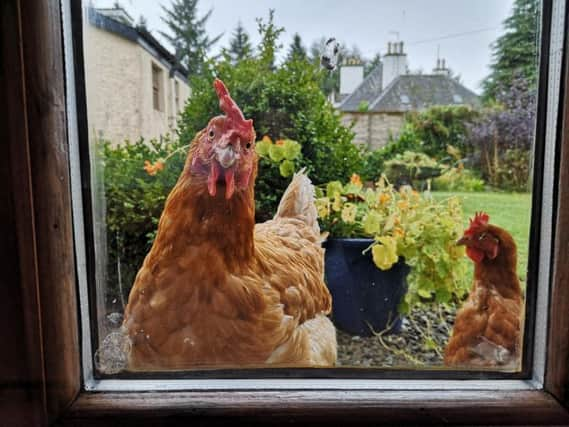Chlorinated chicken 'leaves salmonella to run rampant', consumer group warns


Watchdog Which? said that one of the reasons why foodborne disease rates are so much higher in the US is because the practice is often used as a “desperate attempt to make up for widespread safety problems in food production" and could increase the number of food poisoning bugs such as salmonella.
Dr Fox said that the controversy about washing poultry in chlorine was purely an “animal welfare” issue, adding that it would be impossible to ban the practice if Britain entered into a trade agreement with the US. Both hormone-fed beef and chicken washed in chlorine are banned under EU rules, preventing meat imports from the US which are produced this way.
Advertisement
Hide AdAdvertisement
Hide Ad“There’s been no argument about food safety on chlorine-washed chicken – it’s been an argument about animal welfare,” he told an event.
“So, it’s not been about food standards per se, so that’s a slightly different debate and much more difficult to quantify because the legal definitions about it at the WTO are much less.”
The comments came as Westminster environment secretary Michael Gove told a Holyrood Committee that American demands for the UK to accept chlorinated chicken and use of hormones in food is to "appeal to aspects of the domestic audience" rather than a workable trade negotiation.Giving evidence to the Scottish Parliament's Rural Economy Committee, Mr Gove was asked about issues of food hygiene and use of hormone-fed animals following reports that America would want the UK to accept them after leaving the European Union. He has previously stated that the UK should not accept imports of chlorinated chicken as part of any future trade deal with the US, or "compromise" or "dilute" animal welfare standards.
He said: "What we want to do is to make sure that the negotiating mandate that we have in those trade negotiations is as widely understood as possible, that we involve people from across the United Kingdom and that we take advantage of the expertise and commitment of the devolved administrations."During those negotiations, it has to be the UK Government because it's an international treaty at the end of it, but I think it is absolutely critical that we make sure that any trade agreement works for all parts of the United Kingdom."
Caroline Normand, Which? director of advocacy, said: “Liam Fox is wrong to suggest chlorinated chicken is not a food safety and standards issue. One of the reasons why foodborne disease rates are so much higher in the US is that these measures are often used as a desperate attempt to make up for widespread safety problems in food production - leaving bacteria like salmonella to run rampant.
“Our research has shown British consumers are united in their opposition to lowering food standards as part of any future trade deal - with nearly seven in 10 saying they would be uncomfortable eating chlorine-washed chicken."
She added: “Brexit is an opportunity to design a joined up food and farming policy that ensures food is produced to the highest standards - the nation’s health needs must not be used as a bargaining chip that could be given away to facilitate transatlantic trade."
MP Gareth Thomas, a Labour supporter of the People’s Vote campaign, said: “He's made it very clear that, if he gets his way on Brexit, he'll be pushing for the UK to adopt US food standards. That means chlorine-washed chicken, hormone-injected beef, milk from infected cow udders and numerous other examples.”